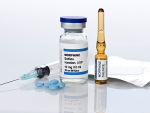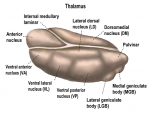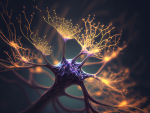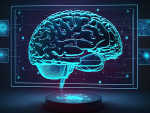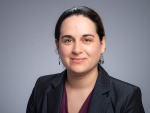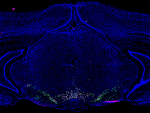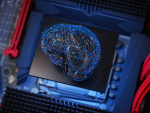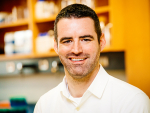Displaying items by tag: department of neurobiology
The purchase and consumption of alcohol and substances often increases during the holiday season, and while some may drink to celebrate, others may drink to suppress their feelings.
Tagged under
The Civitan International Research Center’s mission is to improve the well-being and quality of life of individuals and families affected by intellectual and developmental disabilities.
Tagged under
Eating foods that contain sugar in regulated amounts may not be exceedingly harmful, but overconsumption of sugar can lead to a significant impact on brain function and overall mood.
Tagged under
Understanding the mechanisms underlying tolerance and hyperalgesia is essential to enhance morphine’s utility in chronic pain management.
Tagged under
In the mouse brain, two neural pathways were discovered: The first is active during motivation; the second is active only at the termination of motivation. In humans, these pathways could underlie motivational dysfunctions present in various psychiatric conditions.
Tagged under
Rachel Smith, Ph.D., professor in the UAB School of Engineering and principal investigator in the Neural Signal Processing and Modeling lab, was recently awarded multiple grants to fund research in seizure onset localization.
Tagged under
UAB scientist aims to inspire children from underrepresented backgrounds to pursue a career in science and help them understand that achieving their passions is possible.
Tagged under
Neuroengineering blends engineering principles with neuroscience to find better ways to treat neurological conditions and to build on understanding how the brain and nervous system function.
Tagged under
Tagged under
The investigators will look at diet’s impact on mobility, physical and cognitive function, as well as on pain, fatigue, sleep, mood and anxiety, in people with multiple sclerosis
Tagged under
This therapy, using sustained release of nitric oxide, may be a novel, efficient and safe way to prevent and treat multiple metabolic diseases.
Tagged under
- release
- school of medicine
- school of engineering
- department of medicine
- department of biomedical engineering
- department of neurobiology
- division of endocrinology diabetes and metabolism
- division of cardiovascular disease
- harbert institute for innovation and entrepreneurship
- comprehensive diabetes center
More than 2,600 students will graduate from UAB this spring. Approximately 1,600 students will walk in one of the university’s three ceremonies.
Tagged under
- release
- commencement 2022
- office of the president
- college of arts and sciences
- graduate school
- collat school of business
- school of engineering
- school of nursing
- school of health professions
- school of medicine
- school of public health
- school of education
- honors college
- institute for cancer outcomes and survivorship
- oneal comprehensive cancer center
- department of neurobiology
- campus dining
- uab medicine
Adeel Memon will be the first graduate of the UAB neuroengineering Ph.D. program during the 2022 spring graduate commencement ceremony on April 29.
Tagged under
The distinct cell populations were identified by single-nucleus RNA sequencing of 21,600 cells of the rat ventral tegmental area, located in the midbrain.
Tagged under
The fields of neuroengineering and brain-computer interfaces could have a tremendous impact on a number of neurologic conditions, such as stroke, neurodegenerative disorders, Parkinson’s disease, dementia and other brain diseases.
Tagged under
Newly funded research by the McKnight Foundation will study whether genetic links contribute to addiction and relapse.
Tagged under
Tagged under
- release
- advancement
- office of the president
- office of the provost for student and faculty success
- department of anesthesiology and perioperative medicine
- department of neurology
- department of biochemistry and molecular genetics
- department of cell developmental and integrative biology
- department of clinical and diagnostic sciences
- department of dermatology
- department of emergency medicine
- department of family and community medicine
- department of genetics
- department of medical education
- department of medicine
- department of microbiology
- department of neurobiology
- department of neurosurgery
- department of obstetrics and gynecology
- department of ophthalmology and visual sciences
- department of orthopaedic surgery
- department of otolaryngology
- department of pathology
- department of pediatrics
- department of pharmacology and toxicology
- department of physical medicine and rehabilitation
- department of psychiatry and behavioral neurobiology
- department of radiation oncology
- department of radiology
- department of surgery
- division of academic general pediatrics
- division of acute care surgery
- division of adolescent medicine
- division of advanced medical imaging
- division of anatomic pathology
- division of cardiothoracic surgery
- division of cardiothoracic anesthesia
- division of child abuse pediatrics
- division of clinical immunology and rheumatology
- division of community anesthesia
- division of diagnostic radiology
- division of developmental and behavioral pediatrics
- division of forensic pathology
- division of gastroenterology and hepatology
- division of gastrointestinal surgery
- division of general internal medicine
- division of general pediatrics and adolescent medicine
- division of genomics and bioinformatics
- division of gerontology geriatrics and palliative care
- division of gynecologic oncology
- division of hematology and oncology
- division of infectious diseases
- division of informatics
- division of laboratory medicine
- division of maternal fetal medicine
- division of molecular and translational biomedicine
- division of molecular imaging and therapeutics
- division of multispecialty anesthesia
- division of neonatology
- division of nephrology
- division of neuro oncology
- division of neuropathology
- division of pain medicine
- division of pediatric allergy and immunology
- division of pediatric hematology oncology
- division of pediatric cardiology
- division of pediatric critical care medicine
- division of pediatric dermatology
- division of pediatric emergency medicine
- division of pediatric endocrinology
- division of pediatric gastroenterology
- division of pediatric hospital medicine
- division of pediatric infectious diseases
- division of pediatric nephrology
- division of pediatric neurology
- division of pediatric oncology
- division of pediatric optometry
- division of pediatric pulmonary and sleep medicine
- division of pediatric rehabilitation medicine
- division of pediatric rheumatology
- division of pediatric surgery
- division of plastic surgery
- division of preventive medicine
- division of pulmonary allergy and critical care medicine
- division of reproductive endocrinology and infertility
- division of surgical oncology
- division of transplantation
- division of vascular surgery and endovascular therapy
- 1917 clinic
- acute care for elders unit
- addiction recovery program
- addiction recovery scholars
- alabama genomic health initiative
- all of us research program
- autism spectrum disorders clinic at uab
- center for addiction and pain prevention and intervention
- center for aids research
- center for clinical and translational science
- center for emerging drug discovery
- center for exercise medicine
- center for free radical biology
- center for interprofessional education and simulation
- center for genomic medicine
- center for low vision rehabilitation
- center for metabolic bone disease
- center for neurodegeneration and experimental therapeutics
- center for outcomes and effectiveness research and education
- center for palliative and supportive care
- center for pediatric onset demyelinating disease
- civitan international neuroimaging laboratory
- civitan international research center
- civitan sparks clinics
- comprehensive arthritis musculoskeletal and autoimmunity center
- comprehensive cardiovascular center
- comprehensive center for healthy aging
- comprehensive diabetes center
- comprehensive neuroscience center
- comprehensive stroke center
- comprehensive transplant institute
- deep south resource center for minority aging research
- gregory fleming james cystic fibrosis research center
- epilepsy center
- heflin center for genomic sciences
- hepatorenal fibrocystic diseases core center
- department of biomedical informatics and data science
- institute for cancer outcomes and survivorship
- legacy of hope
- liver center
- lung health center
- mcknight brain institute
- minority health and health equity research center
- mucosal hiv and immunobiology center
- multiple sclerosis center
- national spinal cord injury statistical center
- nephrology research and training center
- obesity health disparities research center
- obrien center for acute kidney injury research
- pancreatobiliary disease center
- parkinsons disease information and referral center
- pediatric pulmonary center
- precision medicine institute
- primary care research collaborative
- spain rehabilitation center
- school of medicine
Only 22 early-career researchers were selected as Pew Scholars this year, and Thyme is one of five whose research focus is the brain.
Tagged under
Tyler Huang graduates from UAB with a Bachelor of Science degree in neuroscience and a Master of Science degree in multidisciplinary biomedical sciences with a concentration in neuroscience. He is part of one of the first cohorts finishing an Accelerated Bachelor’s to Master’s.
Tagged under
Preserving brain health in an aging population is a growing concern in the United States. An estimated one in five Americans 65 years and older has mild cognitive impairment, and one in seven has dementia.
Tagged under



